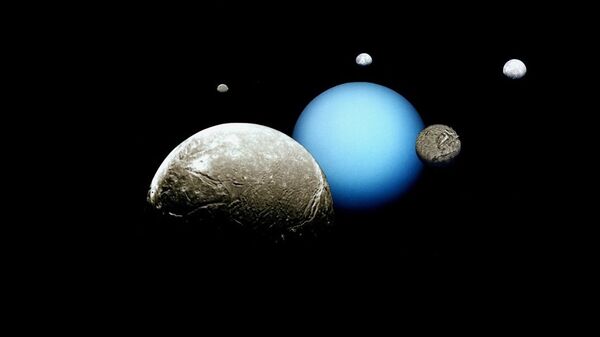However, the moons orbiting Uranus are unique in that their names are taken from literary genius William Shakespeare. Astronomers have discovered a total of 27 moons orbiting Uranus.
'O Brave New World, That Has Such People In It'
Miranda and Ariel take their names from the play, 'The Tempest'. The solar system's Miranda is the smallest moon of the five major satellites.
Ariel is the brightest and possibly the youngest surface among all the moons of Uranus.
'Sweet Moon, I Thank Thee for Thy Sunny Beams'
Oberon, which takes its name from Shakespeare's 'A Midsummer Night's Dream' is an old heavily cratered moon orbiting Uranus.
'The Prince of Darkness Is a Gentleman!'
Cordelia — a shepherd moon is named after the play 'King Lear' and helps to keep Uranus' outer ring well defined.
‘Doubt Thou the Stars are Fire; Doubt That the Sun Doth move'
Ophelia, also a shepherd moon, takes its name from 'Hamlet'. Between Cordelia, Ophelia and Miranda, is a swarm of crowded satellites.
NASA's chief scientist Ellen Stofan has decided to share her thoughts on the 400th anniversary of Shakespeare's death in 1616.
"I find the timeless appeal and relevance of Shakespeare the same thing that I actually love about the study of our Earth, our solar system and our universe. We need Shakespeare, we need the arts, and we need design, to understand our world and beyond," Dr Stofan writes.



